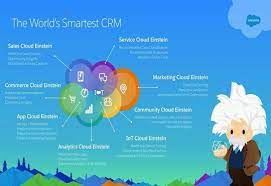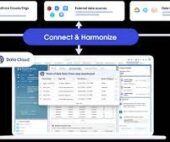If you’re considering integrating generative artificial intelligence (GAI) tools into your business operations, you’re not alone. While these tools have the potential to boost employee productivity, concerns regarding their safety have been voiced by business leaders. Despite their utility in areas like marketing, customer service, and data insights, there is a growing demand for generative AI regulations due to apprehensions about its societal impact and potential risks.
Key Points to Consider: Global AI Regulatory Response: A global response to AI regulation is taking shape, with U.S. lawmakers engaging tech leaders and expressing unanimous agreement on the necessity of AI regulation. In the EU, audits of AI algorithms and underlying data from major platforms meeting specific criteria have already begun.
Business Decision Makers’ Role: As a decision-maker in your business, it is crucial to understand GAI and its implications for interactions with other companies and consumers. Countries worldwide are working to ensure that generative AI adheres to existing measures related to privacy, transparency, copyright, and accountability.
What Your Company Can Do Now:
- Review GAI Products: Evaluate generative AI products available in the market and assess their suitability for your business.
- Internal Development vs. Third-Party Vendor: Consider whether to build generative AI internally or collaborate with a third-party vendor, such as Salesforce, to integrate their products into your tech stack.
- Risk Awareness: Be vigilant about potential risks associated with the deployment of generative AI. Understanding how to deploy it and being aware of potential harms is crucial.
Recent Developments:
- The European Parliament endorsed the EU AI Act, bringing it closer to becoming law.
- New bills in California aim to address AI regulation.
- The Biden Administration plans to implement new AI regulations on tech companies.
- EU member states endorse a political agreement to advance the AI act.
Concerns and Background on Generative AI Regulations:
- Privacy issues and data mining: Transparency in data gathering and usage is crucial.
- Copyright concerns: GAI tools, drawing from extensive data sources, raise the risk of plagiarism.
- Misinformation: AI chatbots can propagate false information quickly, leading to misinformation.
- Identity verification: The need to distinguish content created by humans from that generated by chatbots.
- Child protection: Ensuring safeguards against alarming, AI-generated content on social media for children and teenagers.
Considerations for Businesses:
- Understand the impact of generative AI on business operations and anticipate regulatory roles.
- Address questions related to data origin, usage, customer protection, and transparency.
- Consult with legal experts knowledgeable about generative AI regulations for guidance.
- Establish acceptable use policies and demonstrate data provenance to ensure compliance.
The rapidly evolving landscape of generative AI calls for ongoing awareness and adaptation, with the need for businesses to stay informed and engage in proactive discussions with trusted advisers. As regulatory efforts focus on privacy, content moderation, and copyright concerns, the conversations around generative AI regulations are crucial in navigating the ever-changing technological landscape.













